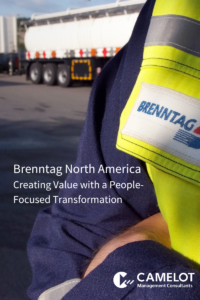In the past, suppliers often remained in the back seat when it came to organizational objectives and strategies. However, recent developments show a changing focus of supplier management. Find out how supplier management is taking over a strategic pole position and becoming an element of companies’ ‘fit for future’ strategies.
What is happening in today’s Supplier Management?
Numerous factors such as the increasing globalization, rising complexity of supply chains, the ongoing trend of digitalization and new technologies such as blockchain, artificial intelligence (AI) or platforms are leading to an organization engaging with a growing number of suppliers. Today´s supply chains are largely evolving from individual linear connections to open, interconnected company ecosystems. Furthermore, due to revolutionary newcomers displacing existing suppliers, supplier lifecycles are getting shortened, and the growing amount of supplier data needs to be managed accordingly. Moreover, supply chain risks are increasing due to the dominance of global sourcing strategies, inferring that organizations are more susceptible to performance failure if their suppliers are not managed and evaluated effectively. Since supplier networks are gaining more complexity and the importance of monitoring supplier performance and risk is growing, it is a crucial to establish a company-wide harmonized and digitalized supplier management process which supports companies in managing the entire lifecycle of suppliers.
Taking advantage of the benefits digitalization has to offer, implementing a supplier management system has the potential to improve data transparency regarding the number and types of engaged suppliers and their performance. This enables evaluation of suppliers’ performance and furthermore identifying areas where they can benefit from additional support for improving their performance. Fast developing technologies such as machine learning, AI and cloud solutions can provide additional support for operational supplier management tasks. Applying such technologies allows to filter information and data, to extract the right information and highly automate procurement processes such as performance management. Moreover, risk management can benefit by leveraging real-time data to get immediate information about incidents at the supplier site or identifying risks based on performance results. Automating operational tasks enables companies to focus increasingly more attention on strategic tasks.
Long-term collaboration or quickly changing suppliers?
The trend of digitalization ensures an increased internal and external information flow and therefore a higher transparency within the supplier network. This generates opportunities to simplify the identification and selection of new suppliers, which on the other hand enables companies to replace their existing suppliers much more easily. Does this mean it is no longer essential to have long-lasting supplier relationships? Is it the goal to have easily replaceable suppliers or could a close collaboration still bring added value to a company?
We believe that collaboration and co-innovation are key for procurement. Establishing long-term relationships creates synergies that maximize the performance in the long run and impede fluctuating performance. A long-lasting, trust-based collaboration with your supplier opens opportunities to establish a further differentiation besides the pure cost aspect. Co-innovation triggered by close collaboration with a supplier can be a key enabler of competitive advantage and allow procurement to support corporate strategy not just through purchase price optimization.
However, despite the impact of digitalization and the transformational changes currently happening in supplier management, the human factor and a relationship of trust over the supplier lifecycle will remain key. Blockchain, AI or machine learning will simplify the daily operations and enable us to focus on the value adding topics such as strong collaboration and co-innovation.
We would like to thank Wolf Göhler for his contribution to this article.

